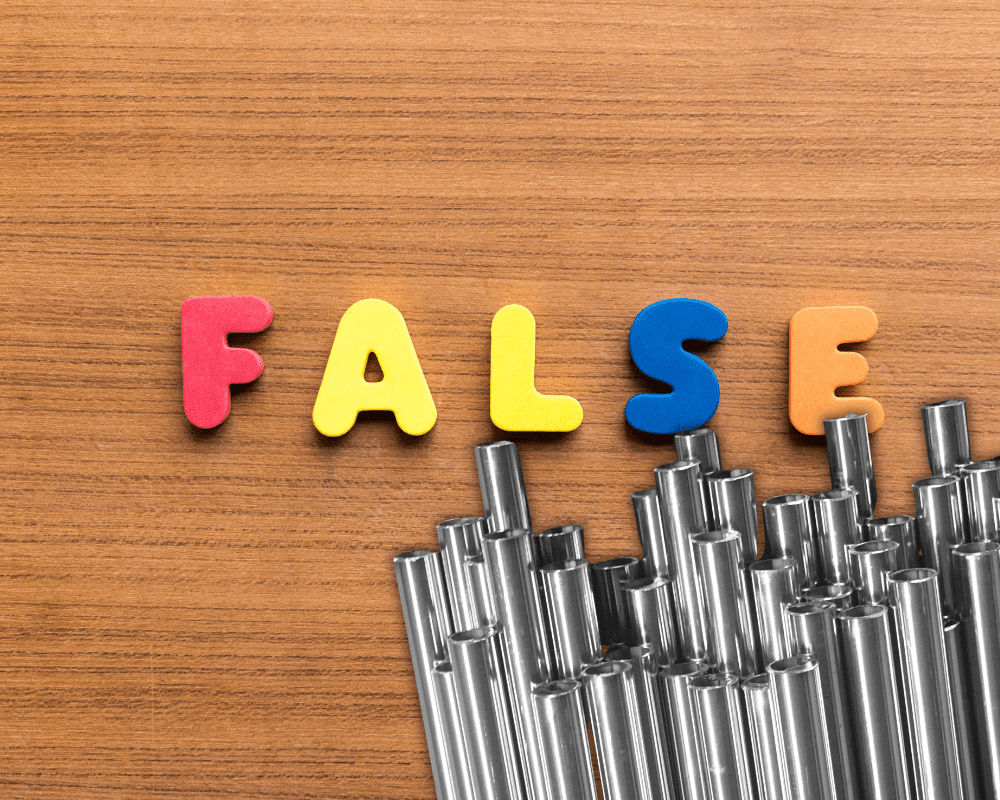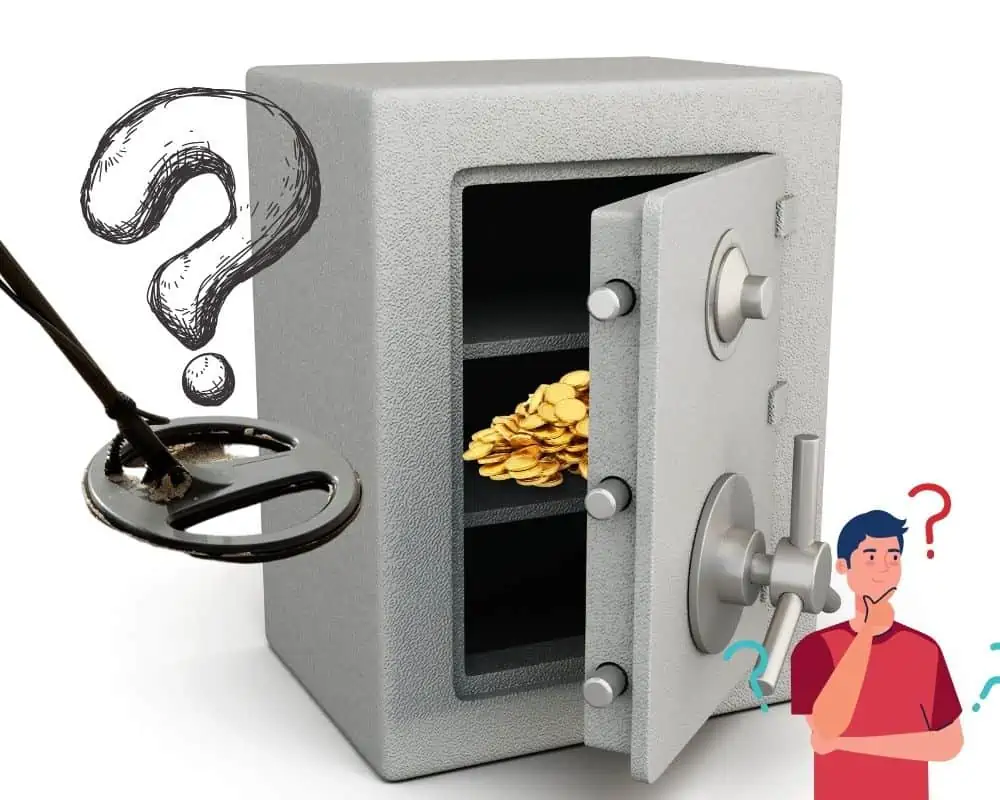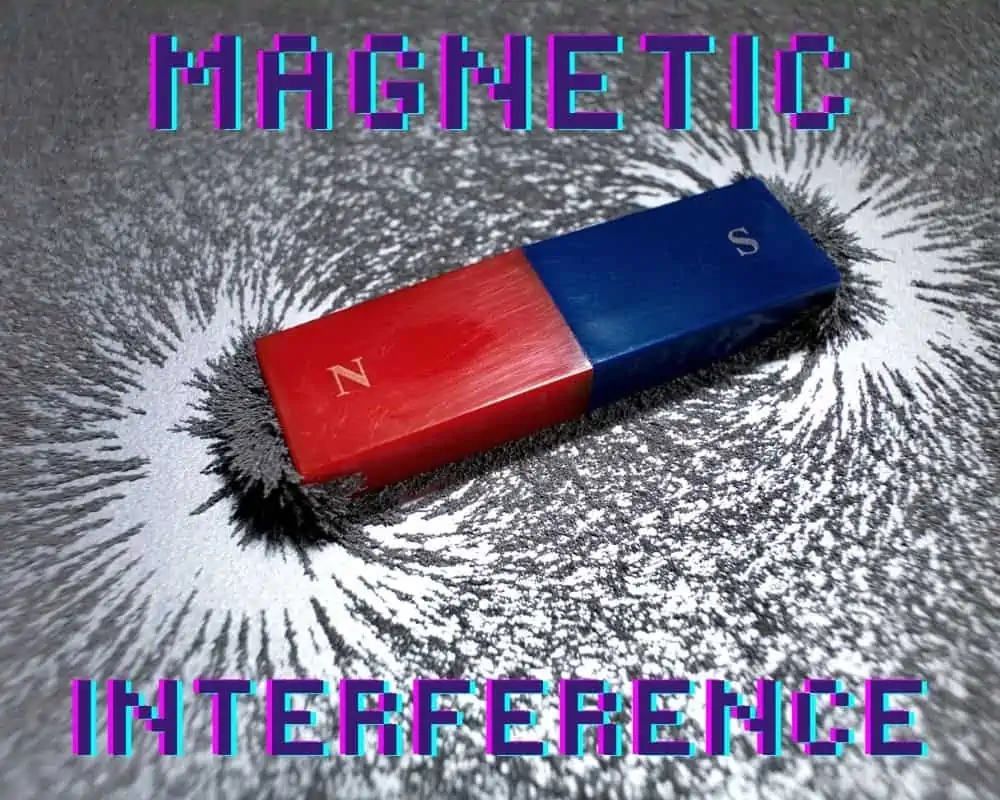What metals cannot be detected by a metal detector?
Great question!
And here’s the simple answer.
All metals are detectable by a metal detector. But, not all metal detectors are equally capable of detecting every metal.
Make sense?
If that doesn’t convince you of this truth, keep reading, and I’ll show you why all those other answers you’ve Googled are wrong.
What Metals Can a Metal Detector Not Detect?

I repeat.
All metals are detectable by a metal detector. If the conditions are suitable.
Now that might be a big if. Or not.
To understand why there isn’t a metal that a metal detector can’t detect, let’s go over the facts.
Metal detectors work by emitting an electromagnetic field into the ground. When a metal enters that field, it disrupts it with its own magnetic energy.
That disruption is what a metal detector uses to identify the presence of a metal.
But, for a metal to generate its own magnetic field, it has to be electrically conductive.
What does that mean?
Well, each metal has a level of electrical resistivity. Meaning it’s capable of easily carrying an electrical current, or it isn’t.
If a singular metal is a poor conductor of electricity, it’s more difficult for a metal detector to detect.
But not impossible!

Maybe in years past, older metal detectors could only find some metal. But now, with the advancement of technology, each device can tune its settings to better match a specific metal signature.
Another factor worth considering is the environment you’ll find a metal.
The surrounding environment, specifically the presence of other metals and conditions of the soil, could make it challenging to detect certain metals with a detector based on the target’s properties.
Because of that, the falsehood that certain metals cannot be detected is sometimes taken as truth.
For example, gold is an excellent conductor of electricity, but you’re more likely to detect iron than gold in most situations.
Ignoring that gold is hard to come by in any situation and iron isn’t the best conductor of electricity, the real problem is the mineralized soil.

You see, gold is often found where other reactive minerals exist.
So, when you’re metal detecting for gold, chances are a lot more iron frequencies are in the area. And they’re sure to overload your readings.
Unless you have a metal detector adept at minimizing other tones to find what you need.
A pulse induction (PI) metal detector has specific features and technology designed to detect gold in soil with higher mineral levels.
Do Metal Detectors Detect Stainless Steel?
Before we move on, I want to address the elephant in the room.
I’m sure you’ve searched this question before and saw a lot of fluff about stainless steel being undetectable to metal detectors.
In the words of Dwight K. Schrute, “False.”

Stainless steel is an iron alloy classified as a poor conductor of electricity.
While that’s true, a proper metal detector can detect stainless steel due to its ferrous nature.
Ferrous metals are easier to detect because of their magnetic properties.
To learn more about ferrous and non-ferrous metals and what can be detected by a metal detector, stop by my in-depth article.
What Metal Is Easiest to Detect?
Now that we’re all on the same page and understand that there is some fluidity to detecting metals, let’s look at each end of the rainbow.
The metal that is easiest to detect with a metal detector is silver. Surprisingly, silver is non-ferrous but has the highest electrical conductivity.

It is the measuring stick to which all other metals are compared.
Which Is the Most Difficult Metal Detected by Metal Detector Sensor?
Crossing the rainbow…
A handful of metals are significantly more troublesome to metal detect.
Some may argue that aluminum or titanium are the toughest.
But most metal detectorists agree that stainless steel is the most difficult metal to detect by a metal detector sensor.
Although going back to what I said earlier, difficult doesn’t mean impossible.
What Are the Sensitivity and Discrimination Settings on a Metal Detector?

Hopefully, by now, you’re grasping the difficulty detecting some metals can present you.
So, besides a brand new state-of-the-art metal detector, what else can you do to find your treasures?
Regarding the accurate detection of metals, sensitivity and discrimination are two of the most significant settings on a metal detector.
Sensitivity is viewed as how much electrical current a metal detector receives from an underlying metal.
The higher the sensitivity setting, the more range the electrical current has. A higher range provides a greater depth of detection and acceptance of more non-ferrous metals.
Discrimination, however, is how much of that current is allowed to be processed.
This setting helps to eliminate false signals and better pinpoint the target metal.

For example, if you detect an abundance of iron when out on a hunt, you can increase the discrimination setting to eliminate those signals.
This makes it easier to find gold nuggets in a heavily mineralized area.
Most metal detectors have sensitivity and discrimination settings, but they vary in range and flexibility. Some sensors allow you to change the settings on the go, while others require you to stop the detector and make changes manually.
For any successful treasure hunt, it takes practice and patience to perfect the function of these settings.
What Can a Metal Detector Not Detect?
There are a ton of valuable treasures hidden underground, and not all of them are metal.

If your mind automatically jumps to rocks, you’d be wrong. Plenty of rocks set off metal detectors.
For instance, volcanic rock can be detected by a metal detector as they are a source of gold and other minerals.
So what can a metal detector not detect?
The typical elements that cannot be detected by a metal detector include gemstones, pearls, glass, plastic, water, and bone.
When it comes to gemstones, metal detectors cannot pick them up.
Diamonds, for instance, have no metal content or trace of magnetism. As a result, they will not be detected by metal detectors.

This goes for other precious stones, such as rubies and emeralds.
In addition, paper is also undetectable by electromagnetic fields, as you might have guessed.
I’m sure you can think of a few more buried treasures. But for the most part, common sense will tell you what a metal detector can or cannot detect.
What to Block Metal Detectors?
Can anything block a metal detector?
There is nothing that directly blocks a metal detector from detection. But some occurrences can, in essence, hide the magnetic field of a metal.

You might have heard about aluminum foil doing the trick, but I wouldn’t trust that if I were you.
We discussed this earlier, but a property with a rich level of iron in the soil will effectively mask the signal of other valuable metals.
Unless the detectorist can adequately adjust their metal detector to discriminate those signals.
Another event that effectively tricks metal detectors is the presence of a magnetic object.
This could be a magnet or another nearby metal emitting its magnetic field.
Not to get too sciency on you, but this is due to Lenz’s Law.
The simplest way to state Lenz’s law is that changes in magnetic flux induce currents in a direction that opposes the change that caused it.
Johnson, 2020
In other words, if something magnetic is near your target metal, it’ll create a force that interferes with the metal detector’s ability to accurately pinpoint the object.

Let’s Be Clear
Just so we’re clear on what metals cannot be detected by a metal detector, I want to give you a quick takeaway.
Most importantly, the truth is that every metal can be detected by a metal detector.
You only need the right equipment and calibration to find it.
Some metal detectors are more sensitive and can distinguish between different metals more efficiently.
So, if you’ve searched an area for a while and wonder why all you found is junk – alter your settings to match the terrain and preferred target.
Metal detectors have a long history of uncovering metals across the globe.
If you’re unsure about your own adventures or need some advice to better find your target, I’ve got some tips and tricks for you.
Until next time!





